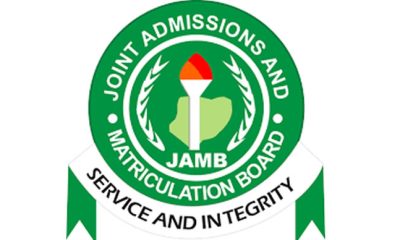Entertainment
Naira Marley’s Trial Adjourned Due to Pending Application for Fiat

The criminal trial of Nigerian singer Azeez Fashola, known by his stage name Naira Marley, was postponed on Wednesday in a Federal High Court in Lagos.
The reason for the delay is a pending application for fiat, which allows the previous judge to continue the trial despite being transferred.
Justice Isaac Dipeolu, the new presiding judge, was informed by the prosecutor, Mrs Bilikisu Buhari, that an application requesting the Chief Judge (CJ) to grant a fiat for the previous judge, Justice Nicholas Oweibo, to resume the trial is currently awaiting approval. This application was submitted on December 8, 2023.

Background of the Case
The Economic and Financial Crimes Commission (EFCC) is prosecuting Naira Marley on charges related to cybercrime. These charges were initially filed on May 14, 2019.
Marley, known for his song “Am I a Yahoo Boy,” was arraigned on May 20, 2019, before Justice Oweibo. He pleaded not guilty, and was granted bail of two million naira with two sureties.
The trial had commenced with witnesses being called, but Justice Oweibo was subsequently transferred from the Lagos division of the court. As a result, the case was assigned to a new judge, Justice Dipeolu.
At the first hearing before Justice Dipeolu, both the prosecution and defence counsel confirmed the information about the pending fiat application. With this information, the court adjourned the case until May 30, 2024, for a status update.

Charges Against Naira Marley
The EFCC alleges that Naira Marley committed the offenses between November 26, 2018, and December 11, 2018, as well as May 10, 2019. The specific charges include:
- Conspiracy with others to use stolen Access Bank ATM cards to defraud victims.
- Using a stolen credit card to obtain illegal financial gains.
- Possessing counterfeit credit cards belonging to various individuals to commit fraud, which is considered theft under Nigerian law.
These alleged offences violate sections 1(23)(1)(b), 27(1), and 33(9) of the Cyber Crime (Prohibition) Prevention Act of 2015.
















